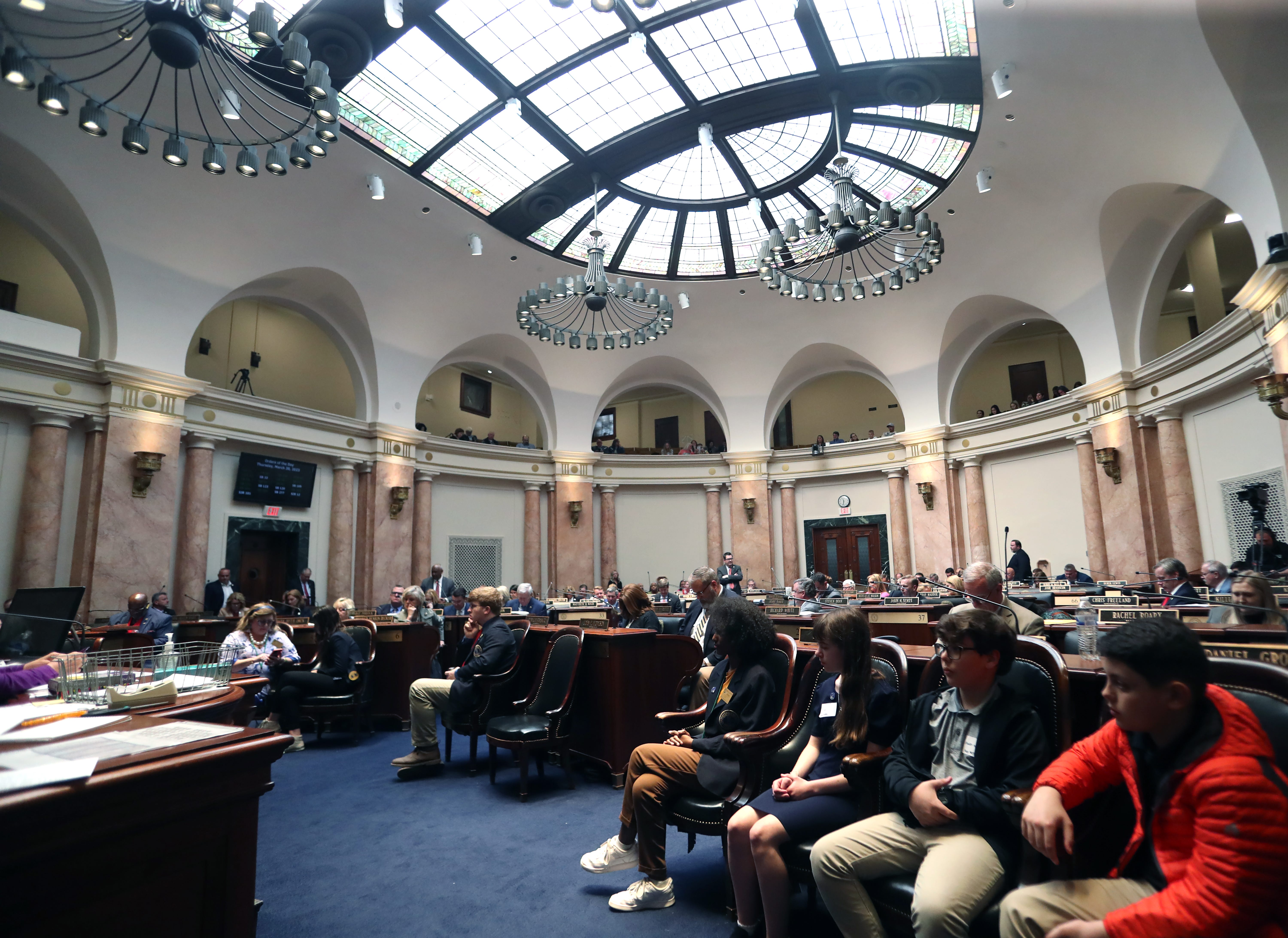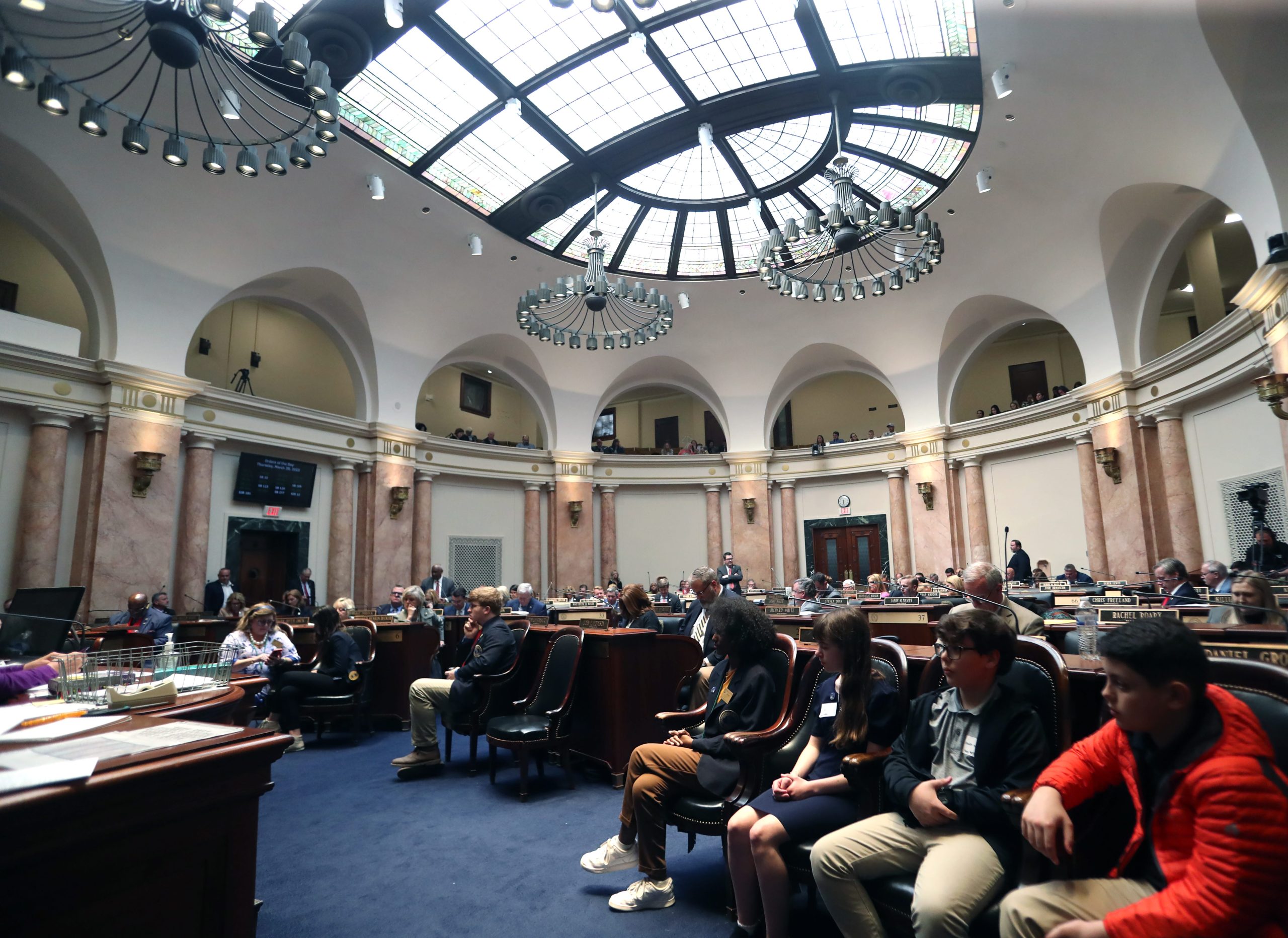
The Kentucky General Assembly passed nearly 200 bills into law during the 2023 legislative session that ended in March, with most of those going into effect this week.
Under the Kentucky constitution, bills passed into law during a regular session go into effect 90 days after that session ends, which would be June 28 — except for bills with an emergency clause, which can go into effect immediately.
Here’s a rundown of 10 noteworthy laws that will go into effect Wednesday:
Gray games ban
Whether you choose to refer to them as “gray machines” or “skill games,” the video games resembling slot machines with cash payouts that have proliferated in stores around Kentucky may no longer remain in operation following the heavily lobbied House Bill 594, which banned them.
While two different lawsuits have been filed by gray games companies to block the ban from going into effect, no injunction has been filed, and the cases remain in limbo as Attorney General Daniel Cameron’s office attempts to move them to counties outside of the Franklin and Jefferson Circuit courts.
The Kentucky Supreme Court is taking up the constitutionality of a new law allowing Cameron to move cases to different counties before those cases can proceed.
According to agreed orders in both cases, the games from Pace-O-Matic and Prominent Technologies may remain in stores while the cases proceed, but the games must be turned off and rendered inoperable.
Sports betting
The legislature passed House Bill 551 just before the end of the session, which will legalize, regulate and tax sports betting in Kentucky — joining most states that have already done so.
Under the new law, horse racing tracks must pay a fee to operate as sports betting facilities, with bets allowed there and on their licensed websites and phone apps. Wagers placed at tracks would have an excise tax of 9.75% and online wagers a rate of 14.25%.
While these facilities and apps won’t be ready to take bets right away, state regulations are expected to be in place by the fall for those tracks to start their new business.
Delta-8 regulations
While a different bill failed that would have banned it entirely, the legislature instead passed House Bill 544 into law, which bans delta-8 just for those under the age of 21 and regulates the sale and testing of the products resembling marijuana.
The Cabinet for Health and Family Services is responsible for the regulation of the widely sold products.
Ban on gender-affirming care for trans youth
While certain portions of the wide-ranging Senate Bill 150 targeting transgender youth have already gone into effect, the part of the bill banning all gender-affirming health care for trans kids will go into effect this week.
The types of gender-affirming care that are banned include not just surgeries, but puberty blockers and hormone therapy.
More: ‘Slate of hate’ and now we wait: 6 takeaways from Kentucky’s 2023 legislative session
The American Civil Liberties Union filed a federal lawsuit last month on behalf of seven transgender children and their parents, arguing it unconstitutionally singles out trans kids by blocking their access to health care cisgender kids can receive and stifles parents’ rights to make medical decisions for their children. Unless the judge quickly grants their motion for a temporary injunction on this part of the law, the ban will go into effect Wednesday.
Fentanyl testing strips
In an effort to prevent accidental overdoes, House Bill 353 will remove fentanyl test strips from state laws prohibiting possession of drug paraphernalia, unless they are being used in connection with the manufacture or sale of the drug.
The powerful opioid fentanyl is responsible for the nationwide spike in fatal drug overdoses in recent years. Fentanyl is often mixed with other types of drugs by dealers without the knowledge of the user. The testing strips allow them to make sure it is not present.
Pension investment ESG ban
Under House Bill 236, Kentucky’s public pension systems are now prohibited from basing investments on environmental, social and governance (ESG) factors, a common complaint of Republicans and conservatives nationally over the past two years.
The new law would require pension investments to be based only on pecuniary factors of minimizing financial risks and maximizing returns.
Louisville juvenile justice facility
House Bill 3 appropriates $13.4 million to reopen a youth detention center in Jefferson County, along with adding stricter rules for youths charged with or convicted of violent crimes.
While the city closed the Jefferson County Youth Detention Center in 2019 due to lack of local funding, the reopened facility will now be operated by the Kentucky Department of Juvenile Justice, which also received additional funding for staffing, raises, services and security upgrades.
Among the new reforms in HB 3: mandatory detention holds on youths charged with serious violent crime (until they have appeared before a judge, at a maximum of 48 hours); possible criminal charges for parents found to not be cooperating with their child’s diversion program; and the unsealing of criminal records for juveniles convicted or pleading guilty to violent crimes for at least three years.
Reading research center
Senate Bill 156 sets a process to establish a new entity to run Kentucky’s statewide reading research center using evidence-based reading practices, with that organization required to update lawmakers on their impact on state reading and writing test scores.
The legislation was spurred by a Courier Journal investigation into why Kentucky kids struggle to read, highlighting the lack of curriculum focused on a phonics approach.
Unemployment insurance eligibility
Just a year after the legislature dramatically cut the number of weeks unemployed Kentuckians are eligible for benefits (from 26 weeks to 12 weeks), House Bill 146 passed this session to add another four weeks, with the maximum now 16 weeks.
The new law also requires state unemployment officials to advise those with unemployment claims on available educational and skill training opportunities.
More: LIST: How key bills did in the 2023 Kentucky legislature
Student discipline
House Bill 538 is a student discipline measure allowing K-12 school leaders to craft policies on when disruptive students can be removed from classrooms.
Under the new law, principals can move disruptive students to a different classroom or, with the superintendent’s permission, to an alternative school.
Reach reporter Joe Sonka at [email protected] and follow him on Twitter at @joesonka.
